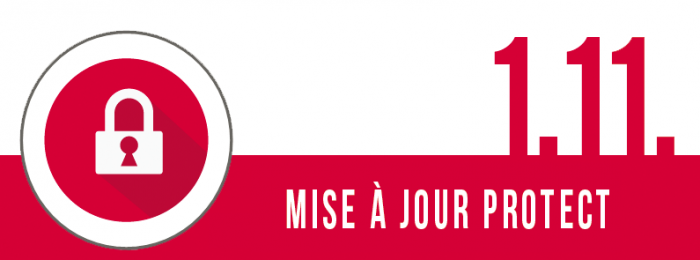Email is an application that is part of everyday business life. The use of messaging goes beyond simple email exchanges. It is a real collaborative tool and a universal means of communication that saves time and dematerialises many communication exchanges.
It is important to have a good email system, that is intuitive to use, ergonomic, reliable, and safe. In the field, GAFAM dominate the market with messaging systems integrated into their office suites, such as Office 365 or Google Workspace. However, alternatives are available. These include open-source messaging systems.
The benefits if open-source e-mail systems

The huge advantage of open-source email solutions is that the software code is available freely. Their use is not conditional on the purchase of a licence, and companies are not tied to a supplier. Integration into the information system can be carried out internally or by an integrator, with no commitment to the latter. Moreover, the openness of the software code also makes it possible to adapt it to very specific needs, at a lower cost.
Choosing open-source means taking advantage of a community of users, who constantly enrich and improve the solution. Whether it is ergonomics, functionalities, or security, the contributors are full of ideas and bring their skills to make the solution evolve and adapt to the needs of organizations.
From the IT department’s perspective, it is above all the technical sustainability that counts in the balance. For IT specialists, open-source messaging systems are often better to implement than those of the tech giants because they call on their business know-how.
Open-source e-mail systems and sovereignity
The security of business e-mail is addressed at different levels. When looking at the data, it is important to ask where it is being stored. How does it get accessed? Open-source solutions do not enforce any rules on companies. They are therefore free to select their data hosting provider and ensure that the data is processed properly.
To ensure continuity of service, companies can subscribe to a “business recovery plan” in the event of an incident, in accordance with the terms and conditions defined with their hosting provider. Selecting a European and open-source e-mail system, combined with sovereign hosting, provides an essential security base. The company’s data is not covered by the Cloud Act, the American law that applies to GAFAM messaging solutions.
Even though there is no such thing as zero risk in terms of cybersecurity, hackers prefer to target large publishers, who have a large share of the market. With a comprehensive email security arsenal, this risk can be reduced.
It is also essential to ensure that the email system can interface with the company’s IT architecture and communicates with other tools. Here again, open source is an interesting alternative.
The example of SOGo webmail

SOGo is an open-source webmail solution that allows to share calendars, address books and email within an organisation. The solution is completely open and freely available, if organisations choose to deploy it internally by themselves.
Based on AJAX, SOGo is a universal and responsive webmail. It is the front end component of the messaging infrastructure that provides users with a complete information access interface. It has a community of several thousand contributors who continually improve the solution.
For companies that want to have full integration and support, Alinto offers since 2022 a professional cloud version of SOGo, with dedicated support and 24/7 monitoring. The solution, which is totally secure, relies on a sovereign hosting.
Messaging has a role to play in the path towards digital sovereignty. Open source combined with European cloud hosting is a way to achieve this. Organisations are increasingly turning to these technologies. Although this transformation may take time due to the inertia of solution life cycles and market renewals, the trend is definitely there.


